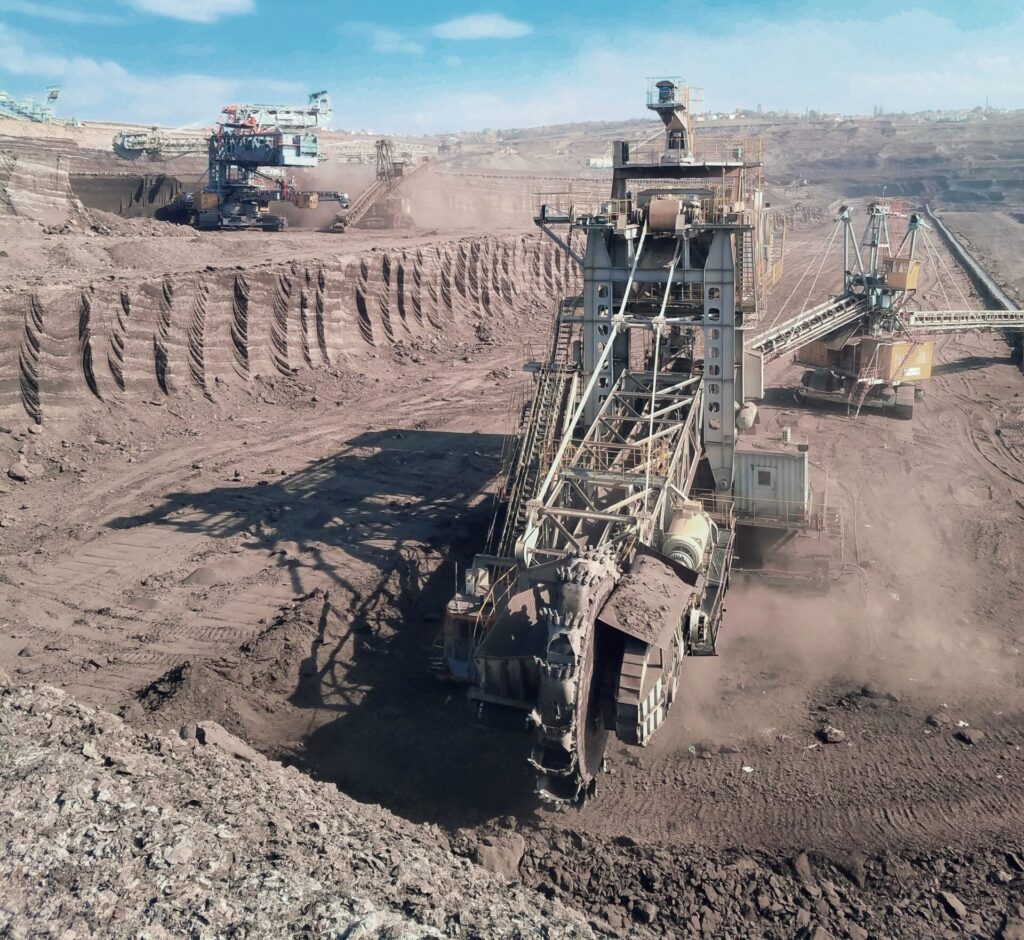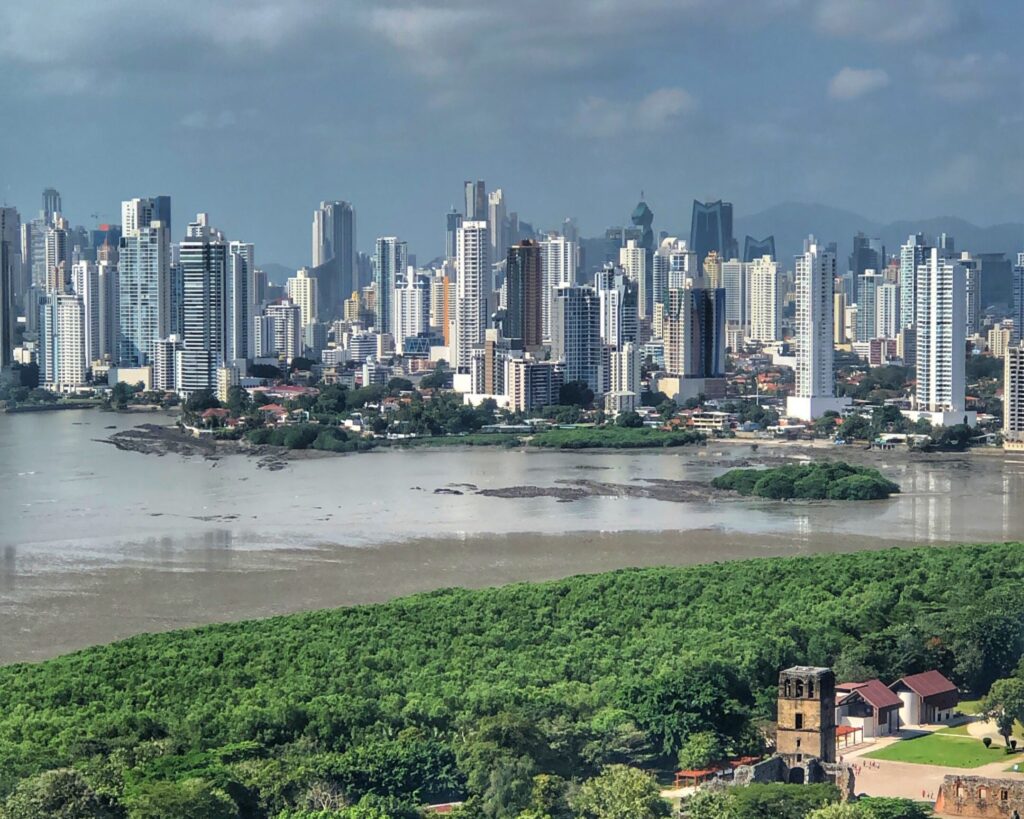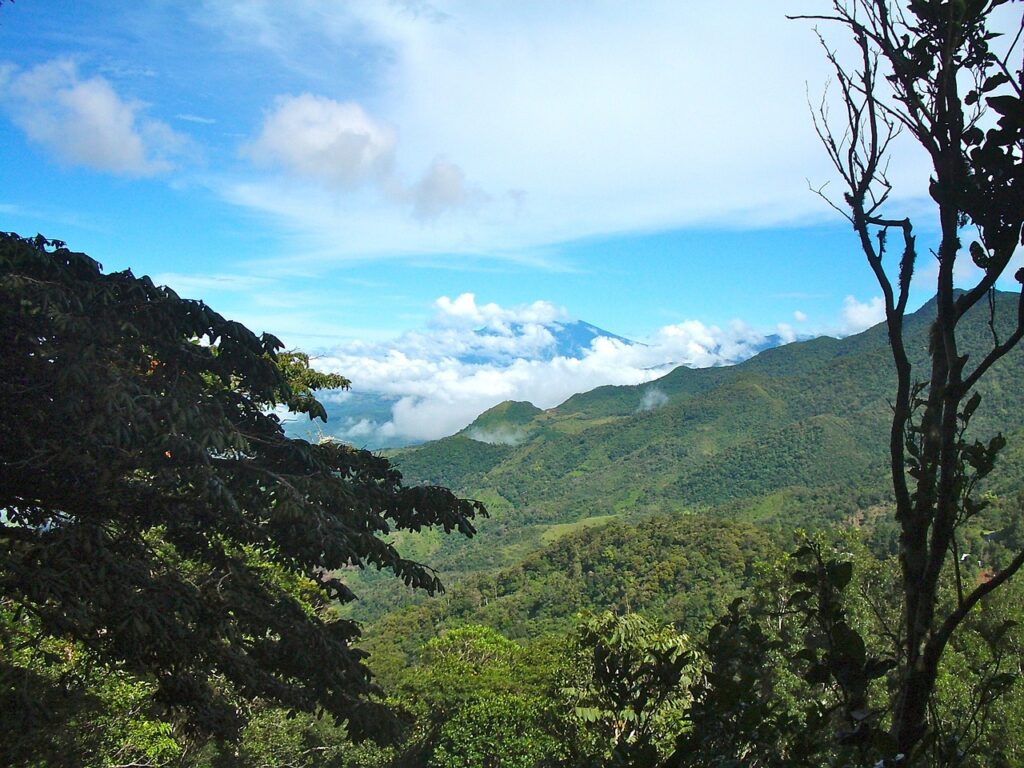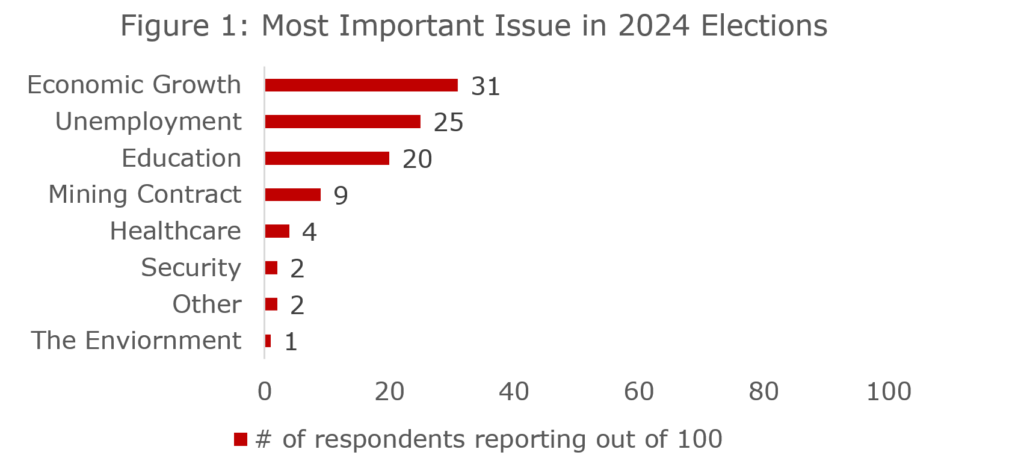By: Emily Churchill, Senior Researcher

Photo 1: Mining fields
Context
For over five weeks this fall, Panama was paralyzed by anti-mining protests. Beginning as small-scale demonstrations in early August, protests intensified on October 20th when Panama’s National Assembly approved a new $375 million contract for the Cobre Panama mine. Representing 5% of Panama’s total GDP, it is the largest copper mine in Central America.1 The new contract extended the mine’s concession over 32,000 acres for 20 years and guaranteed a sixfold increase in mining royalties to be paid to Panama’s government.2
Government officials argued that the new contract terms would bring economic gains to everyday Panamanians. However, protestors – made up of labor unions, indigenous groups, and climate activists – argued that the contract would only promote environmental degradation and corruption.3
Mobilizing in the thousands, protestors implemented nationwide roadblocks which cost Panama’s economy an estimated $80 million USD per day.4 In response, Panama’s Supreme Court ruled unanimously on November 28th to revoke the contract. On December 8th, protestors in Panama and climate activists around the world celebrated as Panama’s government ordered the mine to be shut down. 5
While this was a win for protesters and activists, Panama’s economic outlook is now on shaky ground. First Quantum Minerals, the Canadian mining firm that runs the Cobre Panama mine, has already suspended the contracts of 7,000 local employees. In addition, Panama’s 2024 GDP growth is now expected to be 1-2% lower than predicted.6 To make matters worse, First Quantum Minerals has requested arbitration proceedings to fight the ruling by Panama’s Supreme Court.7 If Panama loses the case, it may have to pay over $50 billion, and its investment-grade rating may take a substantial hit.8
Given Panama’s uncertain economic outlook, it is essential to understand how Panamanians perceive the Cobre Panama mining contract and anti-mining protests. However, conducting in-person fieldwork while protests were ongoing was infeasible. To that end, ORB used an innovative AI-powered virtual discussion board to better gauge how Panamanians perceive the fallout from the mine’s closure.
ORB’s Response
ORB researchers used the AI-powered discussion board software to gain real-time insights from 100 informed Panamanians while protests were still ongoing. We recruited a representative mix of participants spread across Panama City, David, and Colón to discuss our 45 predetermined questions about the mining contract and anti-mining protests. Respondents were able to join the conversation from anywhere using their phone or computer.
On the evening of November 15th, respondents participated in the hour-long conversation by typing out their responses to each question and voting on other participants’ answers in real time. Meanwhile, ORB researchers used an interactive AI-powered analysis dashboard to react to insights from respondents and ask targeted follow-up questions. ORB’s four key findings from this AI-powered study are outlined below.

Photo 2: Panama City over the water
- Panamanians are united by climate activism
Nearly all respondents in our sample (96/100) oppose the Cobre Panama mining contract, arguing that it violated fundamental rights of nature. Indeed, Panamanians are committed to protecting their country’s biodiversity. Panama is one of the only countries around the world that has enacted a rights of nature law which allows citizens to defend nature’s fundamental rights in court. This context helps explain why Panamanians were quick to publicly oppose the controversial Cobre Panama contract.
______________________________________
The mining contract violates several principles established in the constitution, granting many concessions that are harmful to the environment and that can affect us on a larger scale.
Male, David, over 30
______________________________________
- Panamanians perceive protests as necessary to fight corruption and environmental exploitation
Respondents are largely supportive of the anti-mining protests, and more than half (55/100) report having participated in at least one demonstration. They argue that Panamanians enjoy a fundamental right to make their voices heard when the government acts against their best interests, even if it contributes to short-term economic pain.
______________________________________
The protests are necessary because they express the discontent of the people in the streets. It is a way to exert pressure on the government.
Female, David, over 30
______________________________________
Furthermore, many respondents specify that opposing the mining contract is not equivalent to opposing economic growth. They argue that the government’s plan to use royalties from the mining contract to increase public pension payments was an attempt to quell opposition and cover up corrupt activities. Respondents claim that Panama’s government has sufficient revenue from the canal to make substantial public investments without having to resort to exploitative activities like mining.
______________________________________
Increases to public pension payments should not come from mining. The government has sufficient resources to provide this and much more.
Female, Panama City, under 30
______________________________________

Photo 3: Forests in Panama
- There is skepticism toward foreign investment, especially from Canada
Respondents strongly associate the Canadian firm, First Quantum Minerals, with Canada as a whole. As a result, they express reservations about receiving investment from Canada in the future, claiming that the country is more interested in exploiting Panama’s natural resources than investing in economic growth. In addition, they also express concerns about working with Canada on issues related to diplomacy and security.
______________________________________
I don’t want to partner with Canada because of the mining contract. They have already shown they are more concerned with benefitting themselves than Panama and its population.
Male, David, over 30
______________________________________
- Mining will loom large over 2024 presidential election
Looking ahead to Panama’s 2024 presidential election, only 10 (out of 100) respondents name mining as their most important voting issue. However, when asked separately, 83 (out of 100) respondents say that a candidate’s stance on mining will be very important in their final voting decision. This indicates that mining will continue to loom large in Panama’s political discourse alongside other key issues, including economic growth, unemployment, and education.

Conclusion
ORB used an AI-powered virtual discussion board to successfully gather qualitative data from 100 Panamanians amid political and civil unrest. Additionally, ORB used the built-in interactive AI-powered analysis board to analyze this data in one week compared to the lengthier time typically required to code and analyze qualitative data using traditional methods. This allowed us to quickly deliver targeted insights about developing political events in Panama at a time when conducting in-person fieldwork was difficult. Going forward, ORB will continue to utilize this software to respond in real-time to significant political events and to gain informative insights in our areas of research around the world.
______________________________________
1 Panama’s president gives final approval to major copper mine contract | Reuters
2 Panama’s Protests Are About More Than a Mine | Americas Quarterly
3 Panama’s Protests Are About More Than a Mine | Americas Quarterly
4 Anti-mining protesters in Panama say road blockades will be suspended for 12 hours on Monday | AP News
5 Panama’s president gives final approval to major copper mine contract | Reuters
6 Exclusive: Panama may slash GDP growth view due to suspension of First Quantum mine | Reuters
7 Canadian mining company starts arbitration in case of closed mine | ABC News
8 Exclusive: Panama may slash GDP growth view due to suspension of First Quantum mine | Reuters
9 Legislation that provides nature the same rights as humans gains traction in some countries | CBS News
